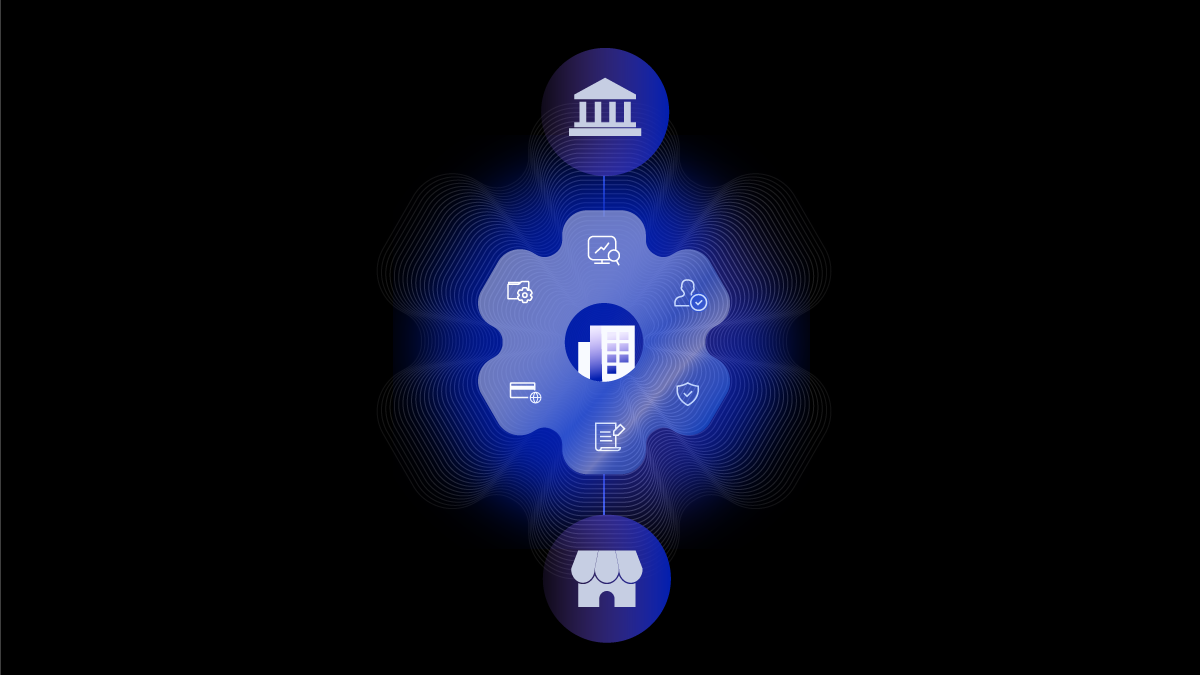- HOME
- Payment basics
- Know all about payment facilitators
Know all about payment facilitators
Payment facilitators (PayFacs) are entities that enable businesses to accept electronic payments without the need to set up their own merchant accounts directly with an acquiring bank. They act as intermediaries between merchants and the traditional payment processing ecosystem. PayFacs operate by creating sub-merchant accounts under their own master merchant account. When a merchant signs up with a PayFac, the PayFac handles all interactions with the acquiring bank and card networks on behalf of the sub-merchants.

Know all about payment facilitators
What is a PayFac?
PayFacs streamline payment processing by handling backend operations including authorization, settlement, reporting, and risk management. They are useful when businesses are starting operations and need to accept payments quickly without the complexity of setting up a traditional merchant account. Onboarding is easier and faster with PayFacs than by setting up individual merchant accounts. They also help growing businesses that need scalable payment solutions to handle increasing transaction volumes, and those requiring integrated payment and compliance solutions. Some examples of PayFacs are Square, Stripe, and PayPal.
How do PayFacs work?
PayFacs contract with acquiring banks directly, and set up master merchant accounts. When merchants are onboarded, they are added as sub-merchants, with an individual merchant ID (MID). The MID is a unique identifier that enables merchants to accept credit and debit card payments. It also aids in tracking transactions and managing payment settlements. As individual MIDs are allocated to merchants, PayFacs offer greater control and transparency in payment processing, compliance, and fund settlement.
When a customer makes a purchase from the merchant's online store, the transaction data is sent to the PayFac. The PayFac enables the transfer of funds from the issuing bank to the PayFac's master acquiring account. Then, the funds are disbursed to the sub-merchant account from the master account, minus any fees.
Regulation of payment facilitators
PayFacs across the world are regulated by government or legal bodies specific to each country. In the USA, PayFacs are regulated by several entities including card networks, the Federal Trade Commission (FTC), which ensures compliance with consumer protection laws, and the Office of the Comptroller of the Currency (OCC) that governs financial institutions that might serve as acquiring banks for PayFacs.
Compliance systems
PayFacs are also required to adhere to various compliance standards such as the PCI DSS (Payment Card Industry Data Security Standard), and AML/KYC (Anti-Money Laundering and Know Your Customer) regulations to prevent fraud and illicit activities, and consumer protection laws such as the Fair Credit Billing Act (FCBA) and the Electronic Funds Transfer Act (EFTA).
Security
PayFacs also employ stringent security measures, including data encryption like E2E, tokenization of cardholder information, adhering to data security standards, fraud and risk monitoring through ML, and managing reports.
Fees and pricing
Depending on the type of PayFac and the business model, there are various types of fees involved.
Transaction fees: PayFacs charge a percentage of each transaction, often ranging from 2% to 3%, plus a fixed fee component. PayFacs tend to charge higher transaction fees.
Monthly fees: Some PayFacs may charge a monthly service fee.
Setup fees: Initial fees for setting up the sub-merchant account may be charged.
Additional fees: Fees for chargebacks, PCI compliance, and other services may also be included.
Conclusion
Payment facilitators offer a convenient and efficient solution for businesses to accept electronic payments without the hassle of setting up traditional merchant accounts. They provide quick onboarding, robust security measures, and comprehensive services that cater to the needs of modern merchants. By understanding the role and functionality of PayFacs, merchants can make informed decisions that support their business growth and ensure seamless payment processing.
Disclaimer
The information provided here is for general informational purposes only and should not be construed as legal or professional advice. Zoho Group does not warrant or guarantee the accuracy, completeness of the information in the article.
